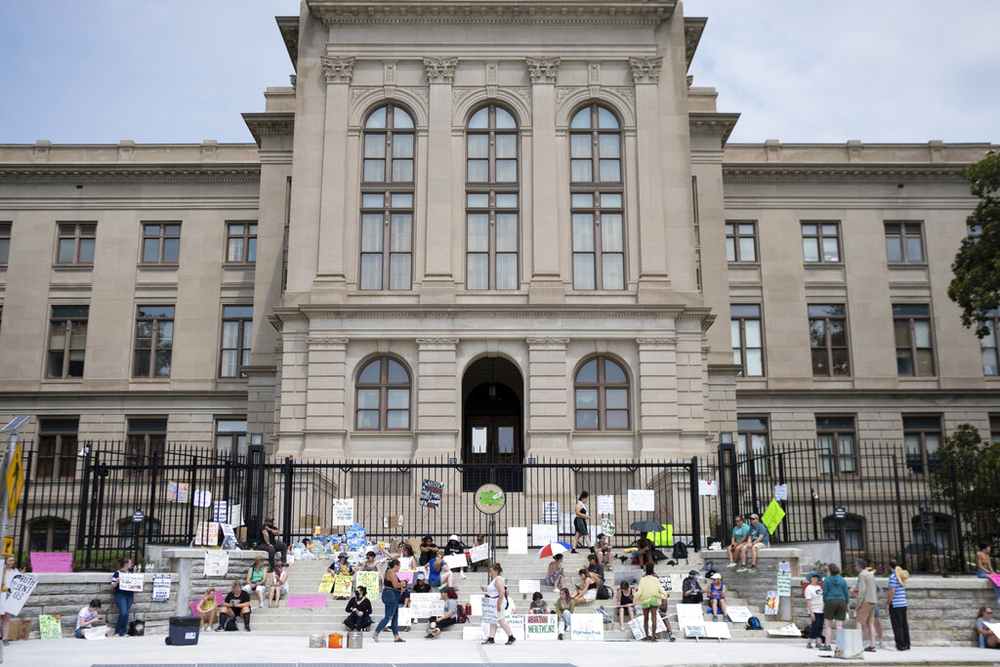
Caption
A small group gathers at the steps of the Georgia State Capitol protesting the overturning of Roe v. Wade on Sunday, June 26, 2022.
Credit: AP Photo/Ben Gray

A small group gathers at the steps of the Georgia State Capitol protesting the overturning of Roe v. Wade on Sunday, June 26, 2022.
Amy Steigerwalt, @DrSteigerwalt, Professor of political science, Georgia State University
State Rep. Mary Margaret Oliver, @mmo_mary, (D) Decatur
Maya Prabhu, @MayaTPrabhu, The Atlanta Journal-Constitution
Stephen Fowler, @stphnfwlr, State reporter, GPB News
1. Yesterday, the 11th U.S. Circuit Court of Appeals approved Georgia's six-week abortion ban effective immediately.
/
Amy Steigerwalt explains how the court got to this decision.
2. The court cited Dobbs, which ruled that there was no constitutional right to abortion.
/
Stephen Fowler brings up personhood arguments.
3. In a state with high maternal mortality rates, there are new pressures on the legislature to widen safety nets.
/
Steigerwalt speaks on competing pressures to improve health outcomes.
4. Since Roe v. Wade was struck down, abortion has become a leading issue in midterm elections.
Friday on Political Rewind: Former AJC columnist Jim Galloway joins our panel.